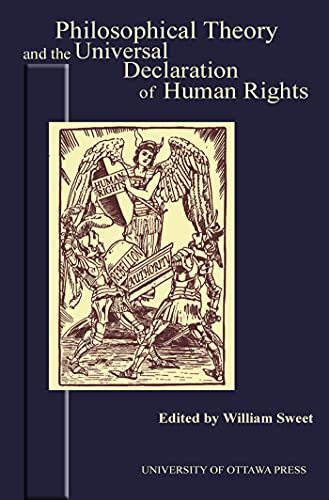
Philosophical Theory and the Universal Declaration of Human Rights
The last 100 years can be described as pivotal in our appreciation of human rights. From the Déclaration des droits internationaux de l'homme of 1929 to the more recent discussion of the establishment of an International Court of Justice, the notions of 'rights' and 'international human rights' have extended beyond rarefied philosophical discourse to become part of our basic vocabulary. The United Nations Universal Declaration of Human Rights (UDHR) of 1948 is a key document that is central to contemporary dialogues about human rights. The UDHR and its subsequent protocols and conventions enumerate a lengthy list of rights that many recognize as fundamental in ensuring human dignity. Philosophical Theory and the Universal Declaration of Human Rights examines the relations and interrelations among theoretical and practical analyses of human rights. Edited by William Sweet, this extensive volume draws on the work of philosophers, political theorists, and those involved in the implementation of human rights. Although diverse in subject and approach, the essays collectively argue that the language of rights and the corresponding legal and political instruments have an important place in contemporary social and political philosophy.